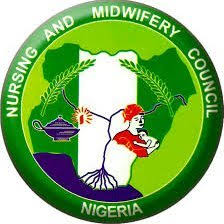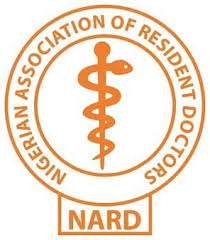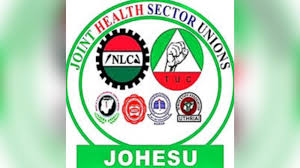COMMUNIQUE OF THE 39TH NATIONAL SCIENTIFIC CONFERENCE OF THE ASSOCIATION OF COMMUNITY PHARMACISTS OF NIGERIA (ACPN)
THEME: “OPTIMIZING PRIMARY HEALTH CARE DELIVERY IN NIGERIA: COMMUNITY PHARMACISTS’ UNTAPPED POTENTIALS”
The Conference was attended by prominent Nigerians, including the Guest of Honour, Dr. E. Osagie Ehanire MD, FWACS; Honourable Minister of Health, Her Excellency, Dame Pauline Tallen OFR; Honourable Minister of Women Affairs Federal Republic of Nigeria, the Chairman of the occasion, His Excellency. Dr. John Kayode Fayemi CON, Executive Governor of Ekiti State and the Chairman Nigerian Governors Forum, His Excellency, Arakunrin Oluwarotimi Akeredolu, SAN; the Governor of Ondo State, His Excellency, Senator Rabi'u Musa Kwankwaso, FNSE, FNIQS. former Governor of Kano State, Distinguished Senator (Pharm.) Mathew Urhoghide FPSN, FNAPharm. Hon. Dr. Shehu Balarabe Kakale Shuni; Member House Committee on Primary Health Care Services. Hon. Aliu Sanni Madaki, Member, House of Representatives, Muhammad K. Ahmad 00N; Chairman Board of Credent Capital and Advisory Ltd., Ms. Anne E. Patterson; the Mission Director, USAID Nigeria, Dr. Kazadi Mulombo, Walter; Head of Mission and Representative W.H.O Nigeria. Dr. Owens Wiwa; Country Director, CHAI Nigeria. Mr. Dominique Jordan, President of International Pharmaceutical Federation. Netherlands, Mr. Frederico Guanais the Deputy Head of the Health Division, ELS/Health Division, OECD Paris.
Other dignitaries present at the Conference include Director General, National Agency for Food and Drug Administration and Control (NAFDAC). Pharm. (Professor) Mojisola Adeyeye, FPSN, Director General, Standards Organisation of Nigeria (SON), Malam Farouk Saliu, President, Pharmaceutical Society of Nigeria (PSN), Pharm. (Mazi) Sam Ohuabunwa FPSN, OFR,MON,NPOM, President, Nigeria Academy of Pharmacy, Prince Julius Adelusi-Adeluyi OFR, mni, Pharm. (Dr) N. A. E. Mohammed, Registrar, Pharmacists Council of Nigeria (PCN ), Past President, Pharmaceutical Society of Nigeria (PSN), Pharm. (Chief) U. N. 0. Uwaga. FPSN, (Chairman, BOT ACPN), Pharm. Yaro Budah. FPSN, Pharm. Azubike Okwor. FPSN, Pharm. Olumide Akintayo FPSN and an assemblage of seasoned speakers and panelists. The Keynote Address was delivered by Mr. Dominique Jordan, President, International Pharmaceutical Federation (FIP) from Switzerland.
After a thorough appraisal of the presentations at the scientific conference, delegates observed and resolved as follows:
1. Conference recalled the advancement of Primary Health Care (PHC) in Nigeria and Internationally:
- PHC started in 1978 with the International Conference on Primary Health Care. Alma-Ata, USSR, where all governments accepted PHC as their national policy, referring to it as the key to attaining "the target of health for all' as part of development in the spirit of social justice.
- The Bamako initiative of 1987 achieved State's participation, rationalized and decentralized implementation of programs, and exponentially increased use of preventive and curative services; Immunization coverage and Prenatal Consultations.
2. Conference put on record efforts at revitalizing Primary Health Care in Nigeria which include:
- The introduction of the Basic Health Services Scheme (BHSS) in 1975
- Primary Health Care adopted in the National Health Policy of 1988.
- The National Primary Healthcare Development Agency (NPHCDA) established in 1992, the third attempt to make Basic Health Care accessible to the grassroots.
Conference also evaluated the mandate of NPHCDA on seven corporate goals namely:
- Control Preventable Diseases
- Improve access to Basic Health Services
- Improve quality of care
- Strengthen the institution of Primary Health Care
- Develop high-performing health workforce
- Strengthen partnerships
- Strengthen community engagement
3. Conference affirmed that the Astana Declaration in 2018 established a "commitment to the fundamental right of every human being" to enjoy the highest attainable standard of health without distinction of any kind. Conference further acknowledged that the Astana Declaration:
- Is fundamentally committed to prioritizing disease prevention and health promotion in meeting all people's lifelong health needs, through comprehensive preventive, promotional, curative, rehabilitative services and palliative care.
- Recognized the increasing importance of non-communicable diseases including mental health issues, injuries and the health impacts of climate change and incorporated 'Universal Health Coverage', the centre of the Sustainable Development Goal (SDG) 3.
- Asserted that evidence shows that countries that reorient their health systems towards Primary Care are better placed to achieve almost all of the SDGs, including SDG 1: 'end poverty', pledging to strive to avoid fragmentation and ensure a functional referral system between primary and other levels of care".
- Is hinged on further asserting that the PHC system is advantageous for the patient and relatives as PHC Facilities can be small, within reasonable travel distance and economical because it leads to expensive skills and equipment being used only on patients who need it.
- Depend on the success of PHC upon major shifts in the relationship between health care providers and populations.
4. Conference asserted based on the foregoing, that Primary Health Care (PHC) is essential health care based on practical, scientifically sound and socially acceptable methods and technology made universally accessible to individuals and families in the community through their full participation, at an affordable cost, at every stage of their development in the spirit of self-reliance and self-determination. Conference reiterated that PHC is the central Function and main focus of a country's health system and is therefore critical to the overall social and economic development of the community. Conference counselled that PHC is the first level of contact of individuals, the family and community with the National Health System which is why the elements of PHC include Education concerning prevailing health problems and the methods of preventing and controlling them; such as Promotion of food supply and proper nutrition; adequate supply of safe water and basic sanitation: Maternal and child health care, including family planning; Immunization against the major infectious diseases: Prevention and control of locally endemic diseases; Appropriate treatment of common diseases and injuries; Provision of essential drugs. Conference summarized that PHC involves knowledge, diagnosis, prevention, treatment, cure and management which should be sustained by integrated, functional and mutually supportive referral systems.
5. Conference inferred, upon a critical evaluation of PHC in Nigeria, that its full potential is yet to be realised because :
- Avoidable hospital admissions are high
- Patients still receive insufficient preventive tests, immunisation, pre-natal care, information, education and communication.
- Nigeria's performance on key UHC Indicators has been grossly sub-optimal.
- Out- of- pocket spending is still extremely high in majority of the population.
6. Conference examined the strategic potentials of Community Pharmacists (CP) in Primary Health Care for the attainment of Universal Health Coverage and highlighted the peculiarities of the Community Pharmacist to include amongst others:
- 24-hours accessibility (easy access, without appointment and FREE CONSULTATION).
- Professionalism (CPs are highly trained and the most trusted healthcare professionals)
- Close proximity; being the first point of call for health seeking consumers in the community.
- Broad competencies and skills including pathophysiology, research, pharmacology, management etc.
- Drug Information services as patient care is laden with drug-related problems not inherent in the drugs themselves but rather in the way they are prescribed, dispensed, used or misused.
7. Conference provided evidence of the Preparedness of Nigerian Community Pharmacists for the Delivery of Primary Health Care Services in alignment with the role of Community Pharmacists which is expanding globally.
i. Conference showcased collaborative works of International organizations and Donor Agencies towards equipping Community Pharmacists for the Provision of Primary Health Care in:
- HIV/AIDS Self-Testing (HIVST), Viral Load monitoring, Medication (ART) Refill. Index Case Testing (ICT) b. Community Tuberculosis (TB) Care
- Malaria testing and treatment
- Skill certification in palliative care
- Family Planning services; insertion and removal of implants; administering injectables.
- Immunization services
- First Aid and Emergency services; poisoning, anaphylactic reactions, injuries etc. to preserve life, prevent condition from getting worse and promote recovery.
These projects were executed or sponsored by Society for Family health, PharmAccess, DKT, MSI, Pop Council and PPFN. BMGF & Merck for Mothers Foundation, USAID, Howard University,
ii. Conference drew attention to Research studies such as "Community Pharmacists' Preparedness for Covid-19 Testing in Nigeria", conducted by Prof. W.O Erhun et at, in response to the need to scale up access to COVID -19 testing by Nigeria Centre for Disease Control (NCDC), due to the community spread.
8. Conference enumerated the rationale and benefits of involving Community Pharmacists in Primary Health Care as a leeway to justify Private Sector participation in PHC to tackle problems such as:
- Decreasing client satisfaction due to increasing waiting time and out of pocket spending
- Need for Public Private Partnership in national communicable disease response
- Declining donor funding
- Unsustainability of donor driven public health protection responses
- Overburdened public sector facilities due to increasing client load with decreasing HRH and inadequate number of health personnel.
Conference stated the benefits of Community Pharmacists inclusion in PHC delivery to include:
- The Nation: Reduction in total healthcare costs; prevention of health threats like epidemics. Promotion of adequate response to pandemics, reduction in morbidity and mortality, data generation, disease pattern documentation, drug consumption pattern, achievement of SDG3
- The Community: Empowerment to be key players in determining the health of their community
- The Family: Empowerment for self-care and care-giving to others
- The Individual: Empowerment to optimize own health
- Other Healthcare Professionals: promotion of collaboration, trust and efficiency
- The Community Pharmacist: Professional fulfillment Activate Windows
9. Conference confirmed albeit authoritatively that the Community Pharmacist can contribute towards all Primary Health Care Components including:
- Health Promotion: Basically, activity focused on individuals, families or communities with respect to Promotion, Protection, Prevention through Work-place wellness programs, School based health promotion, Community Health Programs such as Smoking cessation campaigns. Hand hygiene, Health clubs, Vaccination,
- Treatment: Cure of diseases and chronic disease management; Medication Use Review, Pharmaceutical care, pharmacovigilance, Home care, Patient education, attending to minor ailments, servicing prescriptions. Medication therapy Management, antimicrobial resistance monitoring. Contributing towards the Global Antimicrobial Surveillance System (GLASS) established in 2015
- Rehabilitation: Medication management, Pain Management, Patient education, Care-giver or Family Education.
- Palliative care: Medication use review and pain management
- Disease Prevention: Community Pharmacies are visited by the sick, apparently healthy and the healthy making them invaluable tools for the prevention of communicable diseases and non- communicable diseases through promotion of healthy lifestyles, Assessing Risks and intervening, Immunization, promotion of hygiene practices.
Tools that may be used include Visual aids like television screens, patient information leaflets, display banners, Social media including WhatsApp and Outreaches.
10. Conference informed that Community Pharmacists already render Primary Health Care Services (though they receive no recognition for them) in the listed area which include:
- Extemporaneous preparations
- Breast Cancer screening
- Health education in Community Pharmacies
- Patient empowerment; medical diary maintenance
- Home service to deliver, ensure proper use of medication and monitor patients' vital signs
- Follow-up and patient monitoring, before, during and after drug use
- Collaboration with other health care professionals
- Research and Development to identify patterns in individuals, families and groups
- Filling and Refilling of Prescriptions x. Consultation with patients for preferences, adverse drug reactions. etc.
- Point of care testing and screening; Blood pressure check, Diabetes screening i.e. blood sugar; BMI, Malaria, Typhoid etc.
- Immunization services
- Lifestyle changes; diet, exercise
- Responding to symptoms of minor ailments:
- Simple self-limiting conditions like common colds, coughs, and allergies.
- Certain skin conditions needing over-the counter or pharmacy prescription drugs are managed by community pharmacists
- Referral Services to the next level of care; other healthcare professionals
Conference stated that Community Pharmacists interventions.
i. Reduce the pressure of work on physicians thereby reducing hospital visits and saving costs.
ii. Result in better treatment outcomes in collaboration with GPs either physically or virtually (e.g virtual platforms like Care-click and Health-serve)
11. Conference strongly advised Government at all levels to address the evidence that Primary Health Care, which has multiple stakeholders, is a process in the framework of complex interventions, which consider not only outcomes or impact, but also why and how an intervention works or does not work. Government, therefore, was reminded the need to providing resources to PHCs and facilitate care through:
- Organizational and regulatory changes, thus formulating a new configuration for health care delivery.
- Creating an enabling environment for Health care professionals to compliment rather than oppose one another especially as a result of the new task sharing and task shifting international health care advisory.
- Raising the efficiency, effectiveness, financial viability and equity of Health Services
- Investing in the development of well trained, skilled, motivated and committed Health Care Workers; thus strengthening health care systems
- Reinforcing the contribution of the private sector through Public Private Partnerships
- Tweaking the National Health Care Policy and Strategies; making legislative changes to include Community Pharmacists as major contributors in PHC through administration of vaccines (as operates in over 20 countries of the world), contact testing to greatly reduce the rising disease burden.
- Increasing the visibility and integration of CPs in the NHIS through the allocation of fee for service
- Prioritizing sustainability of Health Care Systems
- Placing a premium on the production of Pharmacists from our universities to boost the Health care system
Conference in summary sought for:
- Formal recognition of Community Pharmacies as Primary Health Care delivery facilities in Nigeria
- Development of appropriate legal and regulatory framework for Community Pharmacies in Nigeria as being promoted by WHO for regions of the world such as the European Region Framework
- The inclusion of Community Pharmacists in the National Emergency Medical Treatment committee ditto for States
- Full utilization of community pharmacists in the National Health Insurance Scheme (NHIS) (as it is done in other climes) in tandem with the enabling NHIS Act.
12. Conference advised Government to yield to clarion calls to make Universal Health coverage a reality in Nigeria by exploring the unique opportunity that exists to improve the Nigerian Universal Health Care coverage and outcomes by leveraging on the availability and accessibility of Community Pharmacists in the country. Community Pharmacists are better positioned to provide a wider spectrum of PHC services as a result of their education and presence at the community level. Community Pharmacy contribution is pertinent now more than ever and has received recognition and commendation by Heads of Government in the developed world.
Conference concluded that realistically, there cannot be an effective PHC System that reaches all without involving Community Pharmacies and optimizing the potentials of Community Pharmacists.
13. Conference, in total commitment to PHC, signed the Abuja Declaration thus; We commit to:
- Support the Declaration of Astana on Primary Health Care for achieving Universal Health Coverage through high-quality, safe, comprehensive, integrated, accessible, available and affordable health care for everyone, everywhere;
- Provide better Primary Health Care Services by transforming our Pharmacy Workforce and strengthening our practice and sciences;
- Transform and scale up Pharmacy Education by ensuring high-quality and fit-for-purpose education and training for primary health care provision, and to provide the foundation for workforce development, professional and scientific advancement;
- Continue to address the growing burden of non-communicable diseases by empowering our profession to provide services in health promotion and disease prevention, screening, referral, disease management and treatment optimisation in people with non-communicable diseases;
- Work with all healthcare professionals to deliver collaborative practice in primary health care, and build solid and strong inter-professional health care teams;
- Shape Primary Health Care delivery by adopting innovative approaches and adapting our workforce alongside the fast-changing digital health technologies;
- Be an accessible, reliable and credible source of medical information for our communities and patients, empowering them to make healthier and more informed choices;
- Play an essential public health role by providing evidence-based information about immunisation, eliminating public misconceptions about vaccines, supporting national immunisation strategies, and expanding vaccination coverage;
- Encourage our Pharmacy Workforce to deliver Primary Health Care effectively through the supply of quality medicines, improving medication adherence and patient safety, ensuring the rational use of medicines, and tackling the challenges of antimicrobial resistance by promoting antimicrobial stewardship strategies in our nation;
- Generate evidence on the impact of pharmacists in improving health outcomes in Primary Health Care Systems through sustainable professional services and ensure broad access to these services;
- Continue to support our current and future pharmacy workforce in order to meet the required competencies for the delivery of Primary Health Care. and to close the gap between pharmacy education and practice;
- Continue to engage our stakeholders and partners, empower our regional and national health leaders, and support enabling pharmaceutical policies to strengthen Primary Health Care, bringing communities, countries and organisations together to grow and support this movement;
- Be regional health care ambassadors in the attainment of the United Nations Sustainable Development Goals through provision of essential patient care and safe, effective, quality and affordable essential medicines and vaccines for all.
Together we will achieve universal health coverage, good health and well-being for all: leaving no one behind.
14. Conference reviewed, approved, and ratified the draft new Constitution of the ACPN which was adopted as ACPN Constitution 2020 by the AGM.
15. Conference applauded the Chairman and NEC for a good execution of policies including proper management of the resources of the ACPN which transcended in a very successful Annual National Scientific Conference.
At the end of the Conference, the following were elected to manage the affairs of the ACPN:
- Chairman - Dr. Samuel O. Adekola MAW, DSA
- Vice Chairman - Pharm. Rev. Daniel Ajayi MAW, DCPharm
- National Secretary - Phar. Ambrose Ezeh
- Assistant National Secretary - Pharm. Nkiru Chuka-Okoye
- National Treasurer - Pharm. Omokhafe Ashore
- Ashore National Financial Secretary - Pharm. Babatunde Samuel
- National Publicity Secretary - Pharm. Kenneth Ede Ujah
Signed:
Dr. Samuel Oluwaoromipin Adekola MAW, DSA
Chairman
Pharm. Absede Idowu
National Secretary




